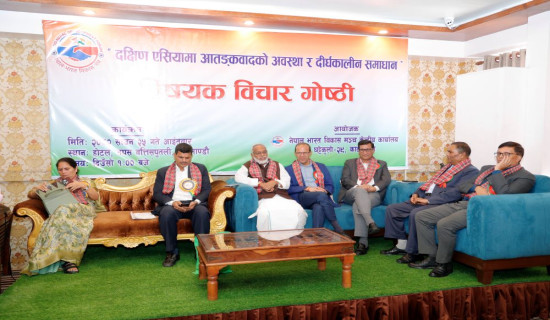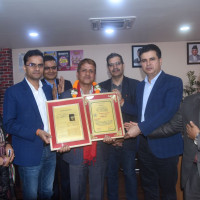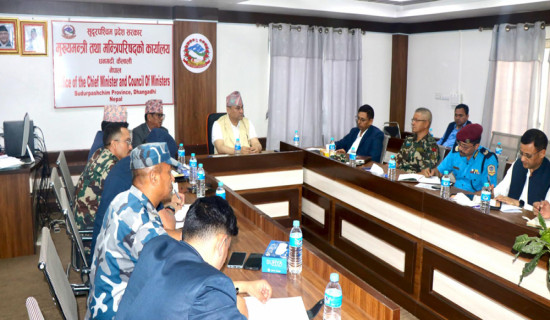- Monday, 11 August 2025
Enhance Party Democracy
Political parties are the agents of change. They bridge the people and the government, channelling the public aspirations into national policy, plans and programmes. They serve as the conduit for the citizens to participate in forming policy and holding the government and its agencies accountable to their promises and performance. Thus, there is high significance of political parties in building a robust democratic society and culture. Political parties are formed with similar political goals, ideology and policy. This is evident in their role in engineering the political upheavals, organising the masses and launching the electoral campaign. The ideology weaves people of various ethnicities, cultures, economic classes and academic levels into a unified force. The parties can accumulate diverse interests, yet perceptual and ideological differences exist there sometimes in a latent form and other times in a manifest form.
However, ideological or policy-level conflicts often mask personal ambition, ego and vendetta, triggering intra-party bickering that sometimes leads to the vertical split of the parties. Friendly competition is not harmful to the internal unity and cooperation. Exercise of inner-party democracy is the best way to sort out the tough discord among the leaders. Failure to listen to the voice of the rank and file gives rise to unintended hostilities that weaken the party organisation from the centre to the grassroots. If the leaders and cadres are divided, the parties lose their ability to funnel the public voice to the national policy and programmes, even if they are at the helm of the government.
Major and minor parties such as the Nepali Congress, CPN-UML, CPN-Maoist Centre, Rastriya Prajatantra Party (RPP) and Nagarik Unmukti Party are now reeling from internal feuds and factionalism. Recently, former president Bidya Devi Bhandari's decision to return to UML surprised and shocked the party leadership. Bhandari had renewed her party membership two years ago but its central committee meeting put the brakes on her entry, citing that it would not set a good precedent if a former joins party politics. However, it is widely believed that the UML prevented her from entering the party as she would pose a formidable challenge to the incumbent leadership. Now, the UML functionaries have been divided over Bhandari's intent to return to UML. Similarly, the conflict between the establishment led by president Sher Bahadur Deuba and the anti-establishment faction under Dr. Shekhar Koirala is raging in the NC. Dr. Koirala became enraged when 18 leaders from his camp faced disciplinary action.
Deputy general secretary of Maoist Centre Janardan Sharma 'Prabhakar' is challenging the party chair Pushpa Kamal Dahal Prachanda. RPP chair Rajendra Lingden has been accused of purging his opponents in the party. The tendency to stick to power among the top leaders has generated an intergenerational gap. All parties lack a plan for leadership succession and a credible mechanism to iron out the disputes. The unnecessary row within the political parties has frustrated the common people buffeted by a livelihood crisis, inflation and poor service delivery. The growing disillusionment with the current set of old leadership does not portend well for the federal democratic republic. Leadership transfer, promotion of internal democracy, adherence to the constitutional spirit and electoral pledge and respect for the popular mandate enable the resolution of internal bickering and make the parties true vehicles of socio-economic transformation.








-square-thumb.jpg)








